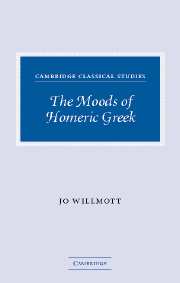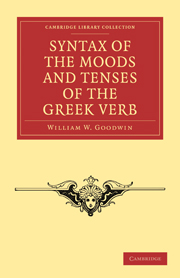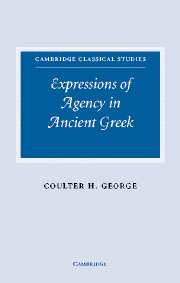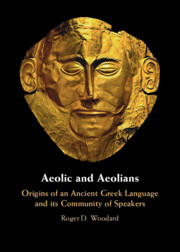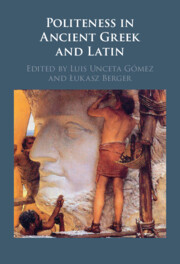The Moods of Homeric Greek
Homeric Greek has a particularly rich system of moods which are analysed in this 2007 book in the light of theoretical interest in the semantic domain of modality. The domain is one of the most complex and interesting, since modal forms are used for the most 'subjective' of messages, expressing our beliefs, intentions, desires, abilities and wishes. Incorporating findings from the theory of grammaticalisation, this study considers the Homeric Greek modal system from a diachronic perspective and offers a radical revision of traditional accounts. Providing insights into both individual constructions as well as the overall system of modality in Greek, it will be of interest to general linguists, linguists studying ancient Greek, and also scholars interested in fundamental questions of meaning in Greek. The indices, where all the instances of the moods in the Homeric poems are categorised into types, also make it useful as a research tool.
- Analyses closely the various constructions in which moods are found in Homeric Greek
- Presents a case study in the theoretical description of a modal system
- Provides comprehensive indices of all instances of the moods in the Homeric poems
Reviews & endorsements
'The synchronic analyses of the Greek moods in the book are excellent: they are more sophisticated and detailed than those found anywhere in the standard handbooks. Close study of this book will make one a more semantically sensitive and thus better reader of Greek.' Bryn Mawr Classical Review
Product details
November 2007Hardback
9780521879880
278 pages
216 × 140 × 17 mm
0.5kg
Available
Table of Contents
- 1. Preliminaries
- 2. Theoretical framework
- 3. Indicative
- 4. Subjunctive
- 5. Optative
- 6. Subordinate uses
- 7. Conclusion.

